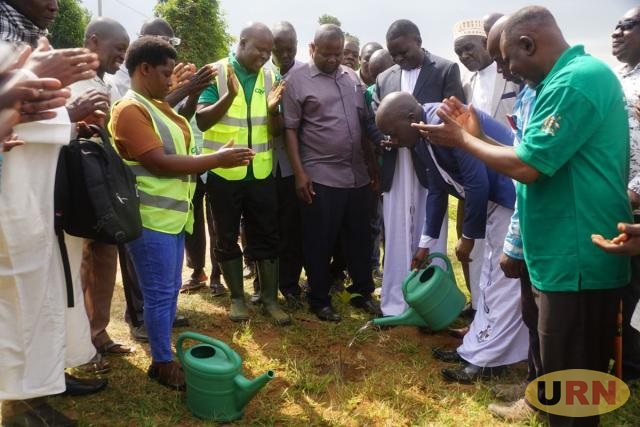
Mayuge, Uganda | THE INDEPENDENT | The Inter-Religious Council of Uganda-IRCU, in partnership with the Busoga Kingdom and Gro Foundation, has rolled out the programme for greening the region by planting trees in different parts of the region.
The greening programme started with the planting of over 2,000 fruit trees at Katuba Primary School, in Kityerera sub-county, Mayuge district.
The project is aimed at partnering with communities to plant largely fruit and indigenous trees with an aim of revenue earnings in 45 years. It is being piloted with 50,000 fruit trees, which shall be largely planted on pieces of land owned by religious institutions across the Busoga sub-region.
Gro’s Director in charge of East Africa, Laban Muwanguzi says that trees are absorbents of poisonous emissions from factories, and vehicles, among others adding that, this project if well managed can attract carbon financing from both government and other private sector players.
Musinguzi says that they are prioritizing the planting of fruit trees like mangoes, and avocados, among others, which can provide both direct revenues and food to the farmers.
Musinguzi further notes that different teams led by IRCU and district agricultural officers have embarked on mobilizing communities about modern agro-forestry practices leading to good yields, before distributing tree seedlings to them for final planting.
IRCU’s Flugencio Mawanda says that they signed a memorandum of understanding with Gro after assessing their ability to support this climate financing initiative in all grassroots communities across the country.
Mawanda notes that they are distributing the tree seedlings largely to established religious institutions, with land titles to plant and fend for the trees throughout the fourth coming generations.
Busoga Kingdom’s Chief Royal Prince, Samuel Zirabamuzaale says that the inclusion of indigenous trees in this campaign is a positive notch towards restoring the sub-region’s forest cover, most of which has been degraded through charcoal burning, and timber harvesting, among others.
Zirabamuzaale argues that, although surrounded by water bodies, the sub-region faces severe drought and flash floods caused by environmental degradation. He added that tree planting is timely to avert future natural disasters, resulting from the negative effects of climate change.
Zirabamuzaale adds that the kingdom has also earmarked part of its land in the 11 chiefdoms for tree-planting activities.
****
URN
 The Independent Uganda: You get the Truth we Pay the Price
The Independent Uganda: You get the Truth we Pay the Price





